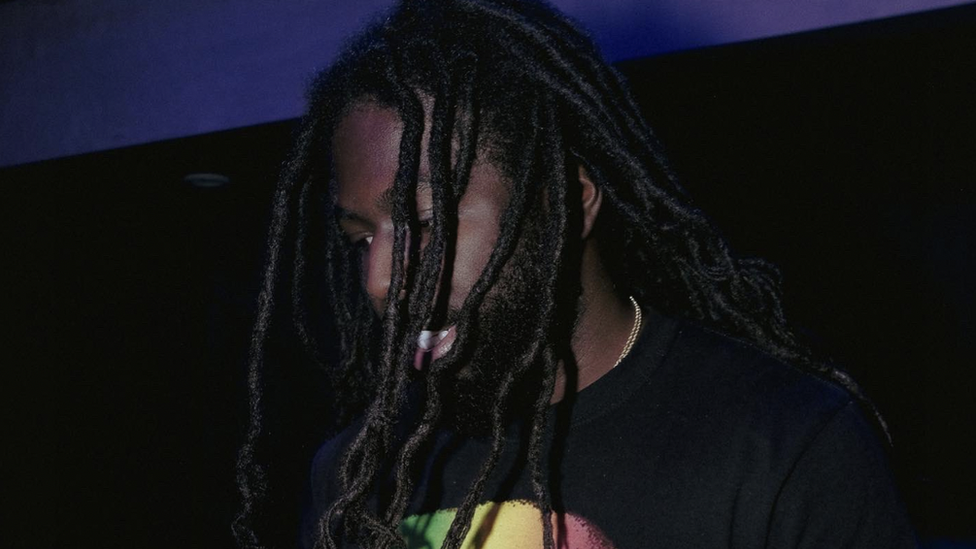Jamaica bans music and TV glorifying crime
- Published

Grammy award-winning Jamaican musician Stephen McGregor, known as Di Genius, has criticised the move
Jamaica's broadcasting authority has banned content that "glorifies illegal activity" - such as drug and gun use.
The new rules cover TV and radio - including music - and list specific topics that are off-limits.
Scamming, drug abuse and the illegal use of firearms cannot be "promoted" - and swearing or "near-sounding" replacements are also banned.
But the strict nature of the ban has been criticised by some artists who argue music is a reflection of life.
It comes amid high levels of violent crime in Jamaica - in 2021, the island nation had one of the highest murder rates in Latin America and the Caribbean.
But the broadcasting agency says the use of public airwaves to broadcast songs that glorify illegal activity could give "the wrong impression that criminality is an accepted feature of Jamaican culture and society".
All forms of "illegal or criminal activity" are now prohibited in an effort to help keep the airwaves "clean", it said - and station operators are required to take immediate steps to comply.
Concern that offending content could normalise criminality among young adults and "vulnerable and impressionable" youths was also cited as a reason for the changes.
However, some of Jamaica's musical artists have criticised the move.
"We can't stop the creatives (artists) from singing about what they see around them or grew around," said Romeich, a local music manager and producer in an
He went on to ask if "Jamaica the only country that has children? Because the same children listen to these same songs elsewhere".
Grammy award-winning music producer and singer, Stephen McGregor, who goes by the stage name
"Yay! Crime and violence gonna magically stop now," he wrote sarcastically, before pointing out that young people listen to music over the internet more often than through a radio.
"[In my opinion] the move is more of a 'look we're doing something' more than actually trying to do something," said Mr McGregor.
This is not the first time a some music has been banned in Jamaica. In 2009, regulators banned music promoting sex, violence, murder or arson, when "daggering" - a type of sexually-suggestive dancing -gained in popularity.
The broadcasting commission's statement said while there had to be regard for freedom of expression, content promoting criminality conflicted with the "tenets of responsible broadcasting".
Related topics
- Published12 October 2022
- Published2 April
- Published24 March 2022